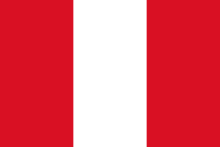 [Originally posted on accessnow.org] Last month, the Peruvian Government made public its intention to hold Internet Service Providers (ISPs) responsible for copyright infringement by their users. Peru committed to doing so — imposing intermediary liability — in a Free Trade Agreement with the U.S. in 2006. However, many have criticized the legislative process thus far as lacking transparency. The outcome of this process will affect Peru’s position on the Trans Pacific Partnership Agreement (TPP), a trade agreement being negotiated among Pacific Rim governments. It also displays the worst practices in multi-stakeholder decision-making, a key component of internet governance.
[Originally posted on accessnow.org] Last month, the Peruvian Government made public its intention to hold Internet Service Providers (ISPs) responsible for copyright infringement by their users. Peru committed to doing so — imposing intermediary liability — in a Free Trade Agreement with the U.S. in 2006. However, many have criticized the legislative process thus far as lacking transparency. The outcome of this process will affect Peru’s position on the Trans Pacific Partnership Agreement (TPP), a trade agreement being negotiated among Pacific Rim governments. It also displays the worst practices in multi-stakeholder decision-making, a key component of internet governance.
The first meeting, a consultation on the proposed copyright law, was announced through an independent website (currently offline) published by a private consultant, attorney Erick Iriarte. Hired by the Ministry of Foreign Commerce and Tourism, the authority in charge of negotiating and implementing Free Trade Agreements, Iriarte is an activist and practicing lawyer with experience on domain name issues, and is frequently consulted for anything related to the internet. The site described the initiative as a public consultation on the subject, sponsored by the Ministry and the Inter-American Development Bank (IADB) and inviting all stakeholders to comment. Soon, however, a major Peruvian newspaper compared the initiative to the controversial SOPA bill rejected earlier this year in the U.S. Users here slammed by the bill, seeing their rights and freedoms under threat.
The website listed a series of meetings with telecommunications companies, content creators and other ISPs, but no meetings with civil society. This motivated an online petition to the Minister demanding civil society participation. After several more negative reports from the press about the ISP liability initiative and the process itself, the website suddenly disappeared, and the authority denied any connection to the website through its Facebook page.
Despite this strange retraction, the announced meetings soon began in the Ministry’s offices. The meeting schedule, including a civil society date, was informally announced by Iriarte himself through mailing lists and a Facebook group. Finally, on Nov. 20, the Ministry issued a timid press release making clear that there was no relation between its initiative and SOPA. At the same time, the Ministry said the meetings would include civil society, but neglected to publish the schedule or other information.
Little is known about who attended the meetings hosted by the Ministry and Iriarte, which were recorded on video but aren’t posted online. Representing Hiperderecho, I participated in the meeting devoted to civil society, but was the only participant. A local blogger went to the session for telecommunication companies and found just one company representative in the room, though I have been informed that companies were represented by an industry organization at a previous meeting.
This round of public consultation is supposed to last three months, the length of Iriarte’s contract with the Ministry. After that, we’re expecting a first draft of the bill for discussion. Once the Ministry incorporates that feedback, an improved version of the bill will be sent back to Congress, but there’s no deadline. So there’s still room for participation in the future and no agreement is conclusive at this stage.
From an international perspective, it’s very important to keep an eye on this process. The U.S. government has secured bilateral agreements throughout Latin America with very restrictive intermediary liability and copyright enforcement provisions. A balanced national ISP copyright liability law, respectful of due process considerations and fundamental rights, will be a strong argument to oppose further restrictions on digital copyright — as the U.S. proposed in the leaked intellectual property chapter of the TPP.
This is our chance: the Peruvian authority preparing this national bill about ISPs is the same one in charge of negotiating the controversial TPP, which also includes excessive intermediary liability provisions. Civil society has a unique opportunity to open a debate about ISP liability for copyright infringement, with some of the same authorities that are negotiating the TPP. In the end, the TPP will override Peruvian law, but a good ISP law will strengthen our stance in TPP talks.
ISPs should not be held responsible for the actions of their users. Furthermore, they should not be pressured to filter, inspect content or interrupt service through due process of law. Any laws on point must respect the constitutional and human rights of users, with wide protection for excepted “fair use” content, ensuring effective access to knowledge and cultural production. Encouragingly, Chile and Costa Rica both took a reasonable approach in implementing the ISP liability regime of their respective FTAs with the U.S. in their domestic laws. Both countries, the first to pass laws based on the FTA provisions, established a requirement for judicial intervention before any content takedown is ordered.
Access has recently helped Peruvian users organize to protect their rights. Now, Hiperderecho and Access call on the Peruvian Ministry of Foreign Commerce and Tourism to carry on the rest of this process with greater transparency and better communication in order to promote a meaningful, multi-stakeholder dialogue on these initiatives. All meetings should be widely publicized through the official channels before occurring and civil society groups of diverse geographic scope and interests should be invited as full, equal, and meaningful partners.




